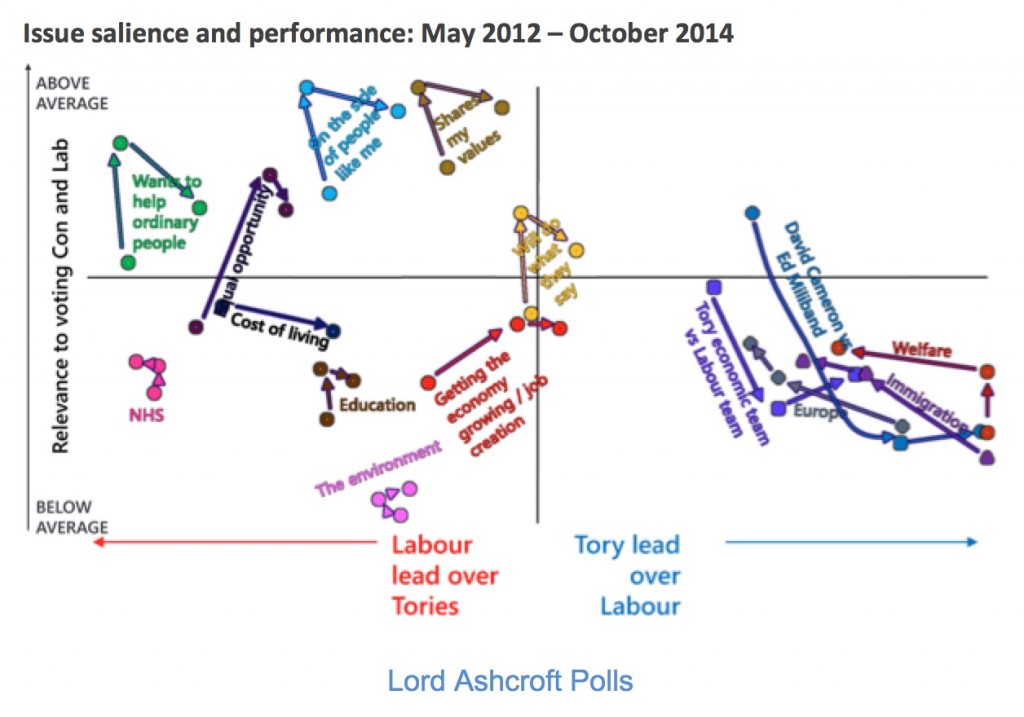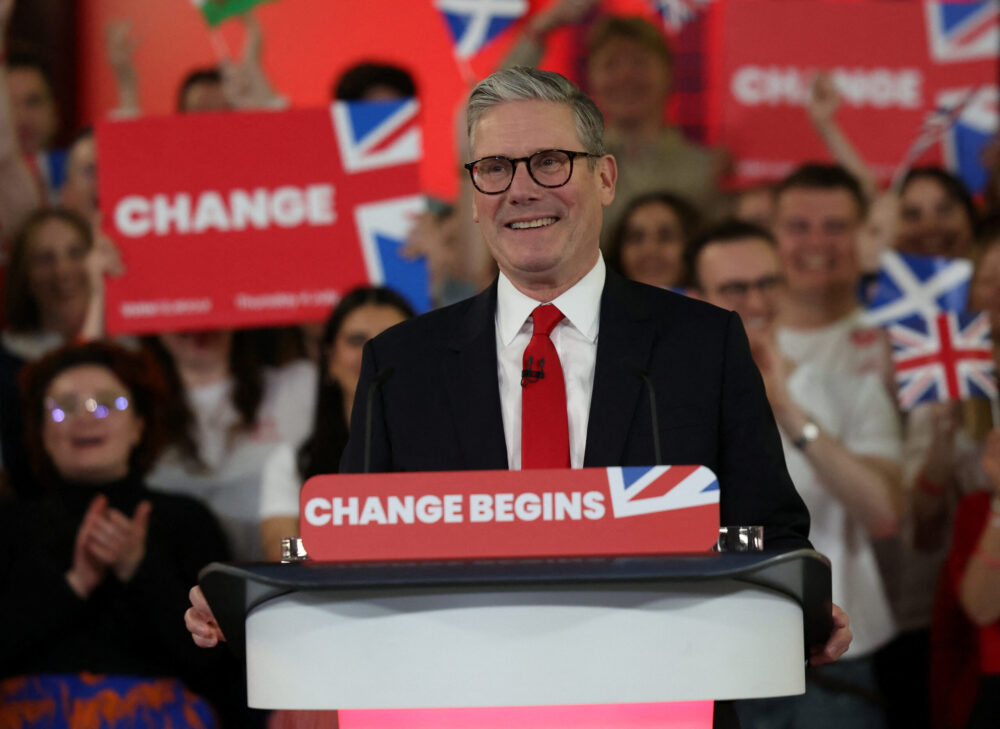
Like all set-piece events in the political calendar, Wednesday’s Autumn Statement has dominated the attention of the Westminster media. As is also the case with such events, most people will not have noticed that it happened, let alone what was in it.
That is not to say it doesn’t matter – just that the measures it included and the overall economic message it conveyed have to be reinforced in the Conservative campaign for the five months until polling day.
I have often pointed out the difference between the pollster and the strategist, and avoided straying beyond my chosen territory. But analysis of my research over the last two and a half years shows the consequences of seeming to put other issues at the top of the Conservative agenda.
In the chart below, which is less complicated than it looks at first glance, the vertical axis shows the salience of particular attributes, issues and perceptions of leaders in determining whether they will vote Labour or Conservative. The horizontal axis shows the two parties’ performance on these measures relative to each other. The arrows show how the position of each issue has moved over time, according to my 8,000-sample polls for Project Blueprint conducted in May 2012, November 2013, and September 2014.
The higher up the issue, the more important it is; the further to the right, the bigger the Conservative lead on that issue. The Tories, then, need as many of these things as possible to be in the top right quadrant.
Two things are immediately apparent. One is that the golden quadrant is pretty sparsely populated. There is currently only one measure – being a party who will do what they say (in yellow, near the centre) – on which the Conservatives are ahead of Labour and which is of above average importance in people’s choice of party.
The other is that party attributes are more important than policy issues or personalities. Sharing voters’ values (green, top centre) and being on their side (light blue, top left) is more salient than being more trusted on the NHS (pink, bottom left), education (brown, bottom left) or even job creation (red, centre), or having the best candidate for Prime Minister (blue, bottom right), or having the best economic team (grey, bottom right).
Over this time some of these things, such as the NHS and education, have remained quite static – which is not necessarily good news given the big Labour leads on these issues.
In other areas the Conservatives have made modest improvements relative to Labour on the cost of living (dark blue, centre left) and getting the economy growing.
Looking at the right-hand side of the chart, we see that the salience of issues like welfare (dark red), immigration (purple) and Europe (green) have risen – partly, no doubt, because Tories spend so much time talking about them. But at the same time, the Conservative advantage on those issues has fallen relative to Labour.
This should be no surprise. Talking about subjects the government seems unable to do much about, or raising expectations beyond what can be delivered, can only reduce confidence in the Tories. It also has the obvious effect of pushing people further towards UKIP, both because it highlights the issues on which their appeal is strongest and emphasises the apparent inability of the main parties to get things done.
The tragedy of this from the Tories’ perspective is that it detracts from the party’s real strengths. Even as Conservative leads grow on having the best economic team and the best Prime Ministerial candidate, those leads become relatively less important in people’s voting decisions.
Refocusing the campaign on the economy, then, would mean entering the election year talking about something the voters think is important, where they see a clear distinction between the parties, and where policies have a real effect.
But it is not enough to talk about the economy in the abstract. The economic debate in the run-up to the election will encompass not just growth, jobs and living standards, but the extent and the consequences of further austerity. To move to the Conservatives, undecided voters do not need to have felt the benefits of recovery for themselves, but they do need to feel they will do so before long. And while balancing the nation’s books sounds important in principle, they need to know why it will be worth their while enduring the measures necessary to achieve it – both in terms of their own prosperity and when it comes to the services they use.
As I said at the time, the PM’s conference speech made a good start on these things, but they must keep up the momentum. The Tories must not be distracted by issues where ramping up the rhetoric serves only to remind people of their disappointment at what they have not been able to do.



